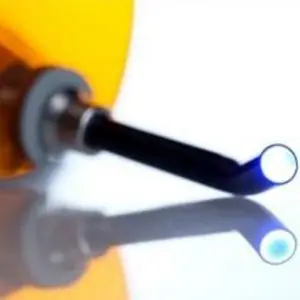There are many different types of jobs that use UV lights. Some people may not even realize that their job uses UV lights. We list these and discuss these below.
What are UV lights?
Ultraviolet (UV) light is a type of electromagnetic radiation that makes black-light posters glow and can cause sunburn. Most people are familiar with UVA rays, which are the longest wavelength and least energetic of the three types of UV radiation. UVA rays make up about 95% of the UV radiation reaching the Earth’s surface. They are present during all daylight hours, even when the sun is behind clouds, and can penetrate through glass.
Although UVA rays are less intense than UVB rays, they are present with relatively equal strength during all seasons and can penetrate clouds and glass to reach your skin year-round. They play a major role in premature aging and wrinkling of the skin, as well as contributing to some skin cancers
UV lights are used in a variety of settings, including hospitals, doctor’s offices, kitchens, and more. They are an important tool in preventing the spread of disease and keeping surfaces clean.
Jobs that use UV lights
Here are some examples of jobs that use UV lights:
- Graphic designers: Often use UV light to cure their artwork.
- Dentists: Use UV light to clean teeth and kill bacteria.
- Printers: Use UV light to dry ink on paper.
- Hospitals and medical clinics: UV lights are used to sterilize surgical instruments and kill bacteria in order to prevent the spread of infection.
- Food processing plants: UV lights are used to kill bacteria and other contaminants in food.
- Water treatment facilities: UV light is used to disinfect water before it is sent to homes and businesses.
- Air purification systems: UV lights are used in air purification systems to kill mold, bacteria, and other airborne contaminants.
So, if you’re ever feeling like you need a little more UV light in your life, consider working in one of these jobs.
What are the benefits of using UV lights?
UV light has a number of benefits, including:
- It can be used to disinfect surfaces and kill harmful bacteria and viruses.
- It can be used to treat skin conditions such as psoriasis and vitiligo.
- It can be used to curing some types of resin and adhesive.
- It can be used to detect fraudulent documents such as counterfeit banknotes.
What are the risks of using UV lights?
Ultraviolet (UV) light is a type of electromagnetic radiation. It is similar to visible light, except that it has a shorter wavelength and is not visible to the human eye. UV light is found in both natural sunlight and artificial sources, such as tanning beds and certain types of lamps.
Exposure to UV light can have both positive and negative effects on health. On the positive side, UV light can be used to kill bacteria and other microorganisms, or to treat skin conditions such as psoriasis. On the negative side, exposure to UV light can damage the skin and eyes, and increase the risk of skin cancer. For this reason, it is important to use caution when exposed to UV light, whether from natural sunlight or artificial sources.
How can I use UV lights safely?
You can use UV lights safely by following these simple guidelines:
- Wear protective clothing: Wear long-sleeved shirts, long pants, and gloves when working with UV lights.
- Cover your eyes: Wear sunglasses or goggles that block UV rays.
- Protect your skin: Apply sunscreen with an SPF of 30 or higher.
- Limit your exposure: Stay in the shade as much as possible, and don’t look directly at the sun.
What are some tips for using UV lights?
Here are a few tips for using UV lights:
- Wear protective clothing: long-sleeved shirt, long pants, gloves, and goggles.
- Avoid skin contact with the light.
- Do not look directly at the light.
- Keep the light out of reach of children and pets.
- Turn off the light when not in use.
In Closing
Many jobs today use UV lights. If you want to learn more, there are a few ways you can. You can look online for educational materials, such as articles and videos. You can also find books on the subject at your local library or bookstore. Finally, you can talk to someone who already knows about UV lights, such as a friend or family member, or a professional who works in one of these industries.

